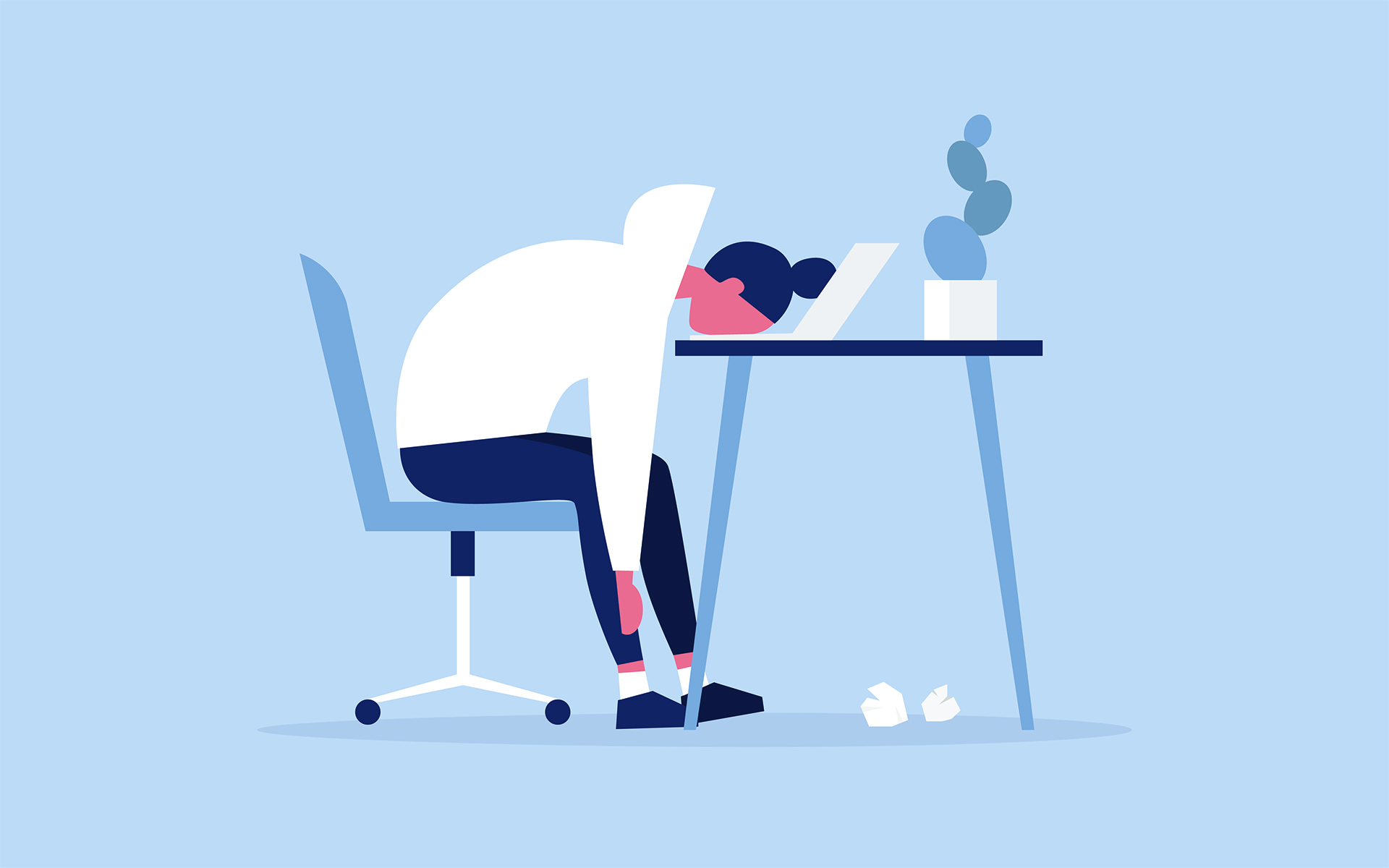
Image from mindful.org
Prachi Shah
In recent months, millions of people around the world began using online video conferencing software for everything from business meetings to classes to weddings. While Zoom and other video chat programs have been invaluable in allowing our schools, businesses, and communities to continue operating in some fashion during the pandemic, many individuals are now beginning to point out the exhaustion they feel at the end of the day following several hours spent on camera. This phenomenon has come to be known as “video conference fatigue,” and social scientists say that there are a number of reasons why we may be experiencing this novel source of stress.
In-person, human communication has evolved over thousands of years, and while we often think of spoken language as the key to communication, studies have shown that more than half of our communication comes from intonation and nonverbal cues such as face and body position. Moreover, conversational aspects such as timing are vital to having a fluid, natural interaction and are so ingrained that even newborn babies show signs of this synchrony in their interactions. Video chat may disrupt this synchrony and the perception of nonverbal cues since there is often a split-second lag between a speaker and the listeners. Since video calls usually only feature someone from the shoulders up, aspects of nonverbal communication such as posture might be more difficult to perceive.
In person, periodic, short sections of eye contact are considered a vital part of any interaction, as it’s been shown to play an important role in the participants getting feedback from and establishing a comfortable level of intimacy in the conversation. On video chat, each participant must make a choice between providing eye contact to another person (by looking directly into the camera) or receiving eye contact from another person (by looking at the screen where their video is streaming), which might contribute to feelings of screen fatigue.
Some tips from experts for limiting video conference fatigue:
- Schedule time in between meetings when you can turn off the camera, stretch, and take time for yourself to help you recharge.
- Turn off the feature where you can see yourself, which takes away the need for you to spend your mental energy gauging how you look to others.
- Establish a consistent routine and a standard place where you work, and keep it separate from areas and times when you are relaxing.
All-day video calls can be exhausting, but being deliberate about how to incorporate these into one’s daily work using these and other tips can help combat video conference fatigue as we go through the next few months virtually.
https://www.jstor.org/stable/1127968?seq=1&mod=article_inline#metadata_info_tab_contents
Top page you have here, i dont agree with all the observations but i think its right what you are saying.
You got a very wonderful website, Gladiola I observed it through yahoo.
I fell upon this sight by accident due to a dear ones mentioning a name. In any event I would like to know more if possible about the side affects of computer use in general. I have been on my computer and phone screen alot more recently and have noticed this fatigue you speak of but not having used the video to engage with others. Just stareing at the screens themselves seem to have the same effect of making me feel exhausted afterwards. It also seems to be effecting my eyesight. Can you elaborate on this?